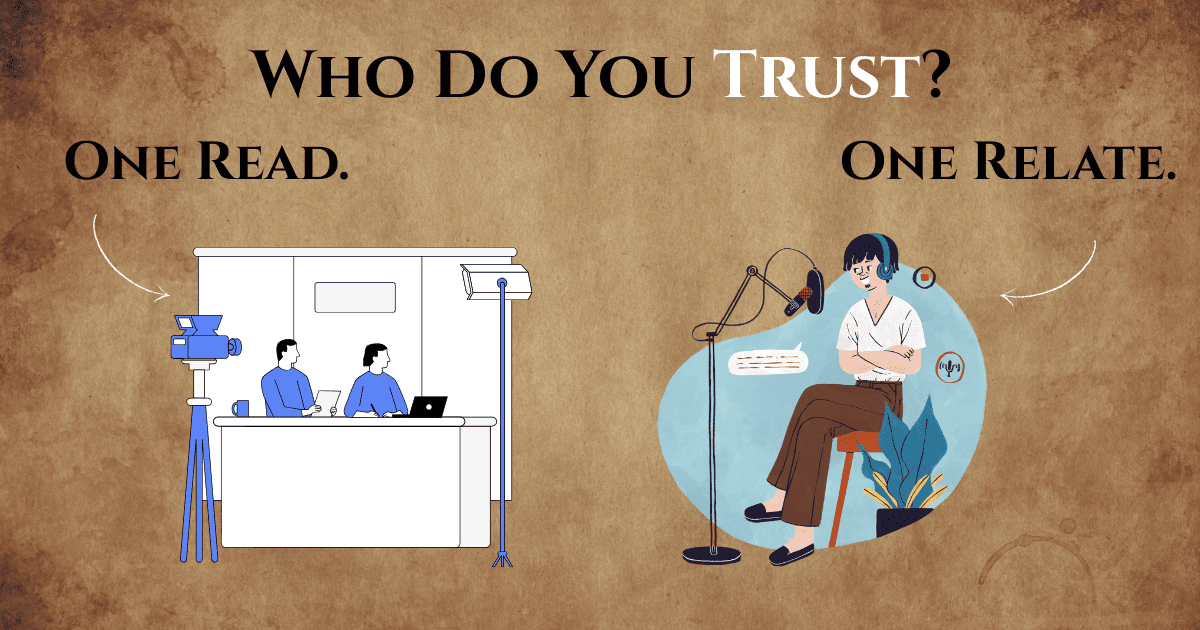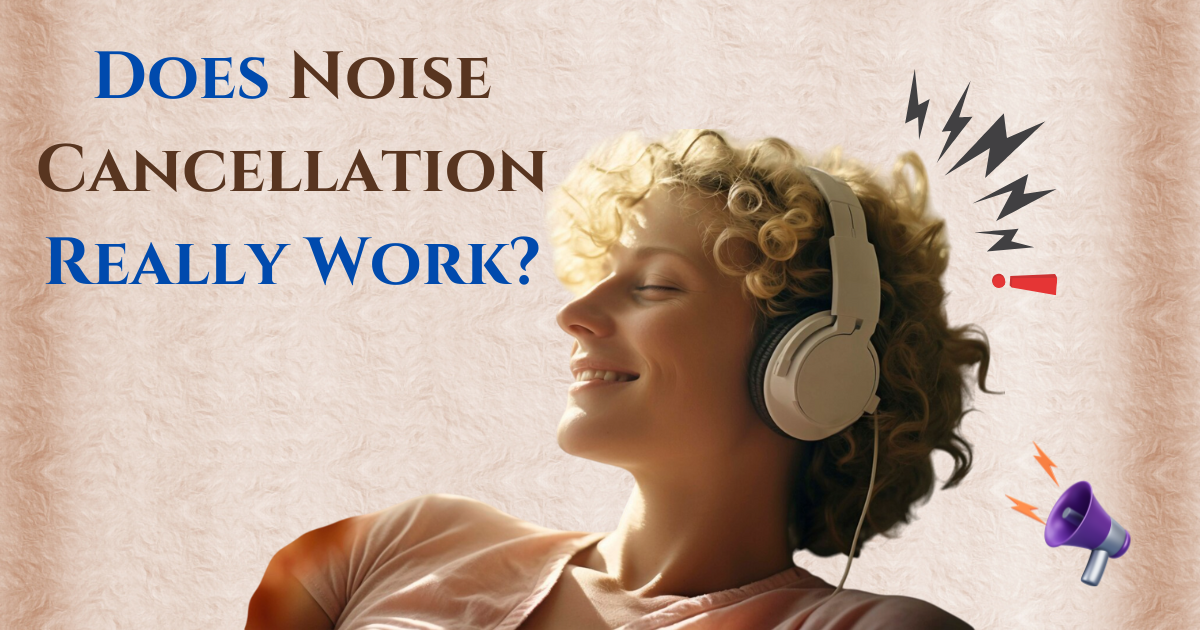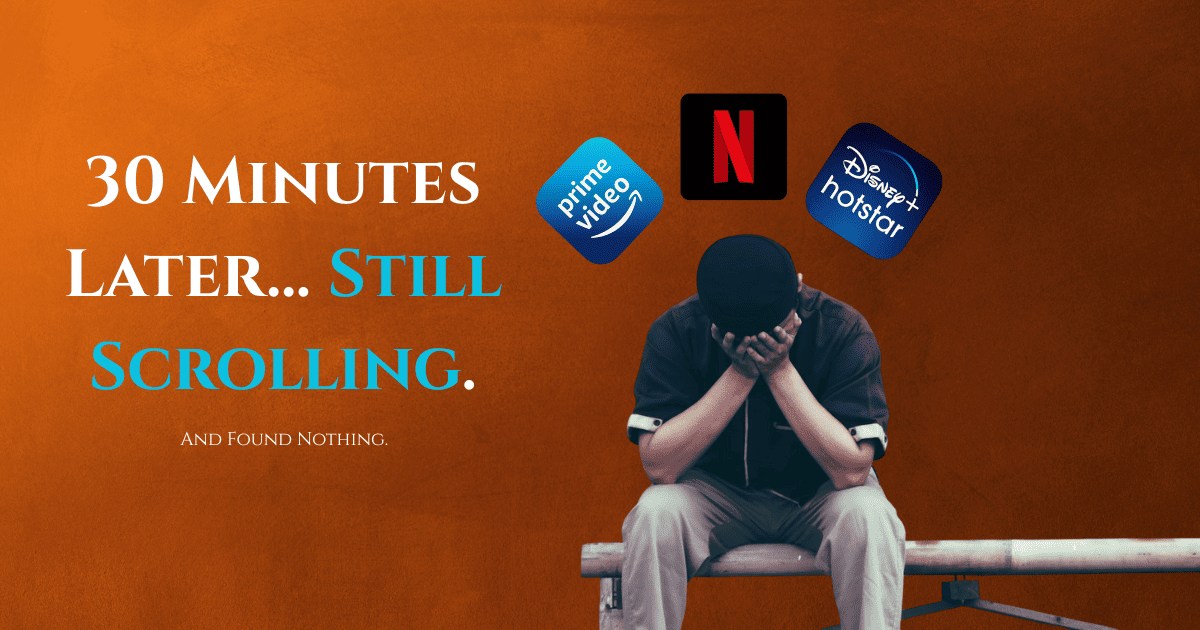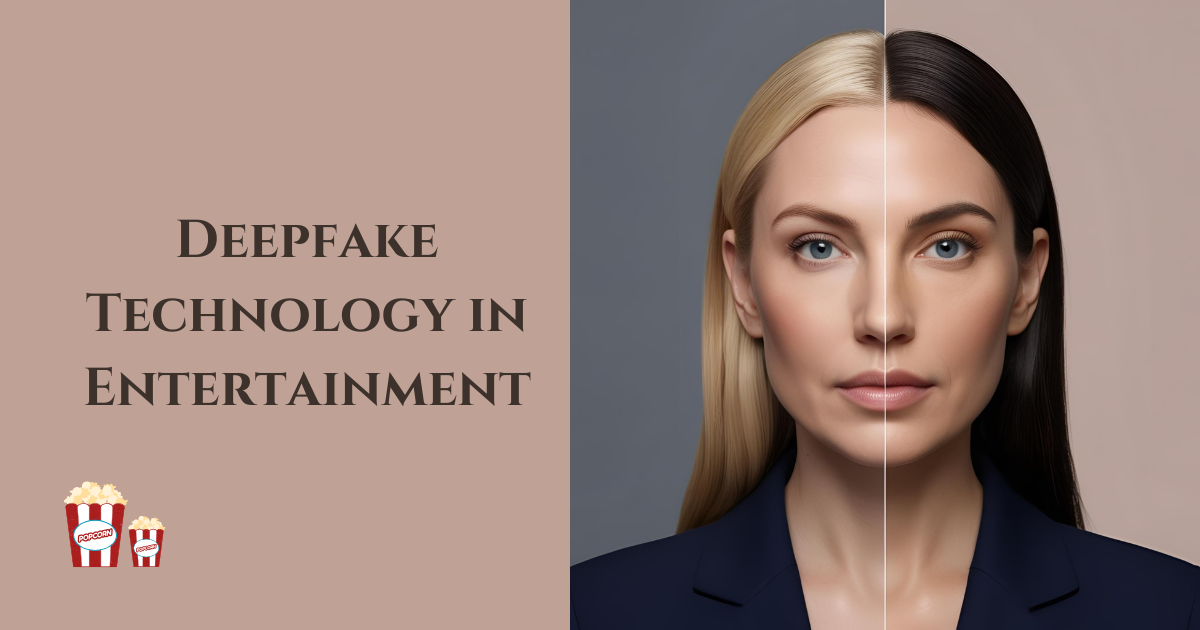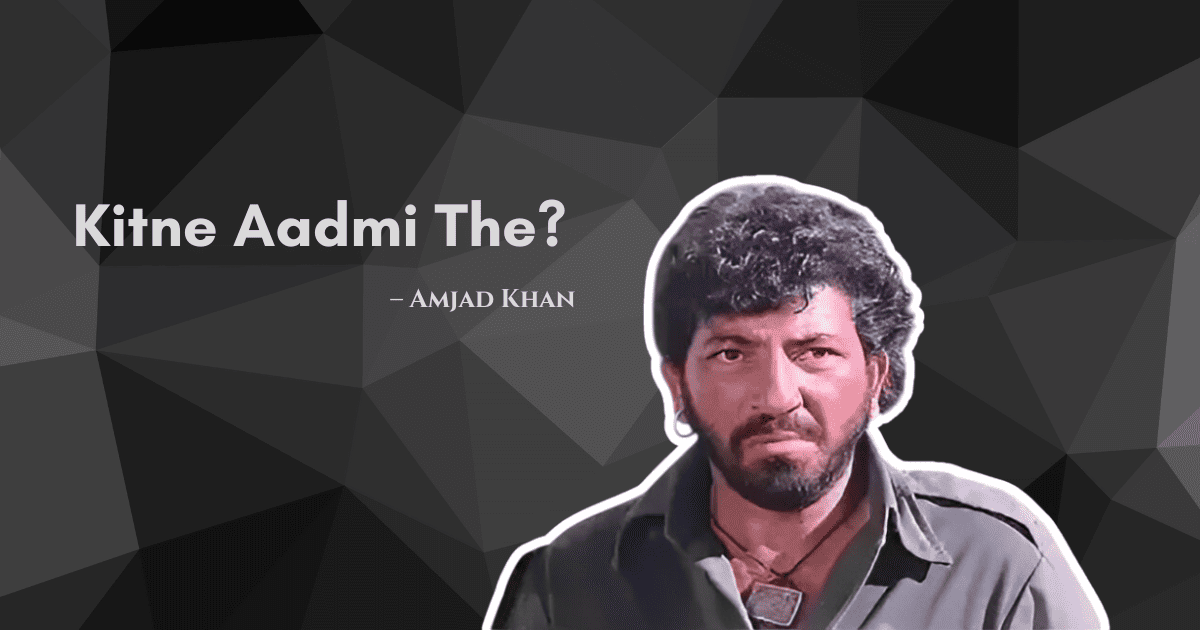Explore why modern audiences feel closer to podcast hosts than traditional news anchors—and how trust is being redefined in media.
Why People Trust Podcast Hosts More Than News Anchors
Turn on the evening news, and you’ll hear polished voices behind teleprompters, rehearsed pauses, and a set so clean it feels distant.
Now open a podcast. You’ll hear someone sipping coffee, going off-script, laughing, admitting they don’t have all the answers.
Guess who people trust more?
It’s not the suit.
It’s the sweatpants and the story.
In 2025, podcast hosts are the new confidants—and traditional news anchors are increasingly seen as corporate faces rather than truth-tellers. But why is this shift happening, and what does it say about how we define trust today?
1. Authenticity > Authority
News anchors were once revered for their authority—voices of reason in chaotic times. But the modern media consumer doesn’t just want facts. They want flaws, uncertainty, vulnerability—all signs of a real person, not a media machine.
Podcast hosts aren’t pretending to be neutral. They’re honest about their perspective—and oddly, that makes people trust them more.
Authenticity has become the currency of credibility.
2. Podcasts Feel Personal, Not Produced
There’s something intimate about the podcast format. You listen while jogging, cooking, driving. It feels like a friend in your ear—not a performance on a stage.
Podcast hosts are often unscripted, unfiltered, and unapologetically human. When they pause, mess up, or laugh at their own jokes, it’s not sloppy—it’s relatable.
Compare that to a news anchor who breaks eye contact with the teleprompter—even once—and suddenly seems robotic.
3. News Feels Filtered. Podcasts Feel Free.
News media is heavily edited, carefully curated, and often shaped by advertisers or politics. While podcasting has its own biases, listeners feel like the curtain’s down.
Even when podcast hosts get things wrong, they often acknowledge it. That honesty builds more trust than a polished version of the truth.
The freedom to explore nuance, to say “I don’t know,” and to invite guests with divergent opinions makes podcasts a space for curiosity, not just conclusion.
4. The Rise of Longform Listening
Traditional news gives us headlines. Podcasts give us context.
A 5-minute news segment can’t compete with a 60-minute podcast that dives deep into the why behind the story. That depth creates emotional investment.
Listeners build long-term trust with a host who explains the world—not just reports on it.
Think of it like this:
A news anchor gives you answers. A podcast host helps you ask better questions.
5. Media Burnout Is Real
Endless breaking news alerts. Social media doomscrolling. Contradictory headlines. Many are tuning out from traditional media altogether—not because they don’t care, but because they feel exhausted.
Podcasts feel like the antidote: slower, calmer, less performative. They offer a space to reflect, not just react.
This shift is psychological. Listeners are not just choosing information—they’re choosing mental clarity.
6. The Power of Voice in the Age of Video
In an era ruled by visuals, it’s ironic: voice-only content is making a massive comeback.
There’s a reason for that. Audio activates the imagination. It feels closer, deeper, more immersive. When you hear someone’s voice regularly, it builds parasocial intimacy—a one-way friendship that still feels real.
A news anchor speaks at you.
A podcast host talks to you.
7. Podcast Hosts Are Building Communities, Not Audiences
News networks often talk about ratings. Podcast hosts talk about community.
Through Patreon, Discord groups, Instagram Q&As, and live recordings, podcast hosts are engaging listeners like insiders—not just consumers. This interaction breeds loyalty.
When you feel seen, heard, and understood, trust becomes the natural byproduct.
8. Breaking the Myth of Objectivity
People no longer believe in purely objective reporting. In fact, many don’t want it. They want transparency.
Podcast hosts often say where they’re coming from—politically, socially, emotionally. It doesn’t make them less trustworthy. It makes them more human.
Meanwhile, anchors pretending to be neutral in obviously biased systems feel… fake.
The takeaway?
Subjectivity that’s acknowledged is more trusted than objectivity that’s feigned.
9. From “Broadcast” to “Bondcast”
Think about it—broadcast media throws content at the masses. Podcasting creates a bond, one episode at a time.
You may not remember the name of a CNN anchor you saw last night. But you remember the podcast host who made you rethink your values, laugh during a tough week, or introduced you to your new favorite thinker.
That’s connection—and connection builds trust.
10. Trust Is Changing—and That’s Not a Bad Thing
We don’t trust who we’re told to anymore. We trust who shows up, speaks truthfully, and stays consistent.
Podcast hosts are doing that—week after week, episode after episode.
Are there problematic podcast hosts? Absolutely. But the overall trend is clear:
People want to be talked with, not talked at.
And until the news industry learns that, podcast hosts will keep winning hearts—and trust.
Final Thought
Podcasting isn’t just another media format—it’s a cultural shift. It reflects how we want to connect: casually, deeply, and honestly.
As trust in institutions falls, trust in individuals rises.
Not the loudest voices.
Not the best-looking sets.
But the most real ones.
So maybe the future of media isn’t about who delivers the news.
It’s about who we believe when they speak.





